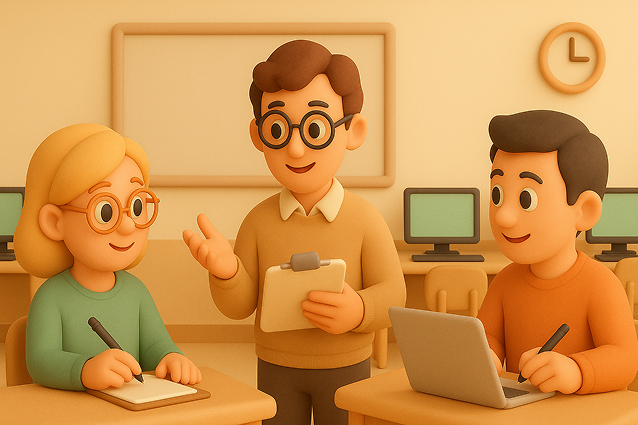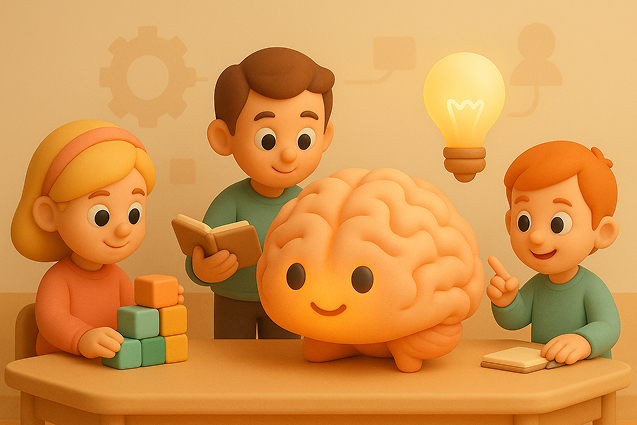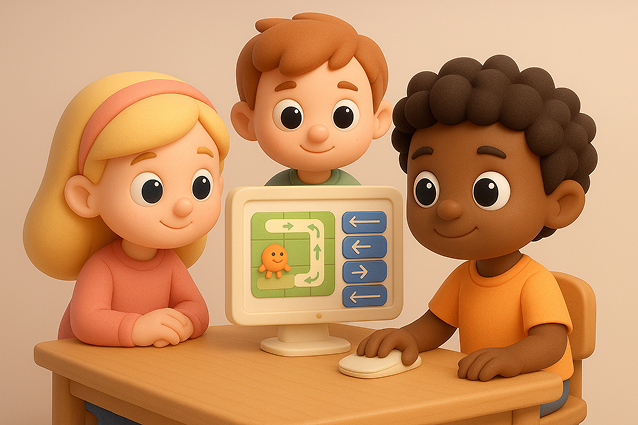A 2019 study using Code.org activities shows how coding helps children plan, focus, and control their actions.
The Story Behind the Question
It starts in a bright classroom. A group of 6-year-olds are sitting in front of tablets. On the screen, a friendly character is waiting for instructions to find its way through a maze.
The children can’t simply swipe or tap randomly. They have to think: First turn left, then move forward twice, then jump. If the plan is wrong, the character will get stuck. So they stop, think again, and change the sequence.
It looks like play—but every click is training their brain to plan ahead, notice mistakes, and fix them.
In 2019, a team of researchers in Europe wanted to know: Can these playful coding activities actually make children think better in real life?
How the Study Was Designed
The researchers worked with two age groups:
– 5–6 years old (kindergarten)
– 7–8 years old (early primary school)
They chose visual, block-based coding activities from Code.org. This design was important:
– No typing skills needed
– No tricky commands to memorise
– Focus fully on logic, sequence, and problem-solving
Step-by-Step Process
Over about one month (8 regular sessions):
1. Introduction to Blocks – Children learned to drag and drop blocks of instructions to control on-screen characters.
2. Simple Paths – Early puzzles with just a few moves to reach a goal.
3. Challenging Mazes – More complex routes that needed planning multiple steps ahead.
4. Debugging – Fixing mistakes when the plan didn’t work.
5. Logic Challenges – Using loops and conditions in a visual way (no text coding).
Each session was short enough to keep attention, but long enough to build a new mental skill.
What They Measured

Before and after the program, the children took simple but powerful tests for two Executive Functions:
– Planning – Organising steps in the best order to reach a goal.
– Inhibition – Pausing before reacting and thinking through the best choice.
These skills are like the brain’s “control panel”—they help in school, sports, teamwork, and daily decisions.
What They Found
1. Planning Skills Jumped
After just one month, children in the coding group were noticeably better at planning. In some cases, the progress was equal to seven months of regular school learning.
2. Better Self-Control
They made fewer impulse mistakes, especially in activities that required thinking before acting.
3. The Change Lasted
When tested again about a month later, their planning skills stayed stronger—showing the benefits didn’t disappear right away.
Why This Matters for Every Child

These gains go beyond the computer screen. The same thinking skills help children:
– Break homework into smaller steps
– Work as part of a team without rushing ahead
– Make better decisions in daily life
Whether or not they become programmers, they learn how to think in a clear, organised way.
How CodyNick Brings Science Into Play

At CodyNick, we design every project around these principles. Like the study, our coding classes, gadget projects, and digital camps:
– Start simple and build complexity step by step
– Encourage planning before action
– Give space to test ideas and fix mistakes
Children might be building a Smart Parking Sensor or designing a Magic Music Box, but what’s really happening is bigger: They’re training their brain to think ahead, focus, and solve problems creatively.
The Bottom Line
Coding is not just about computers—it’s about thinking. And as this research shows, starting young can help children build thinking skills that last far beyond the classroom.
Study Reference:
Piccolo, L. R., et al. (2019). Coding in primary school improves children’s executive functions. Available at: https://pmc.ncbi.nlm.nih.gov/articles/PMC6917597/







